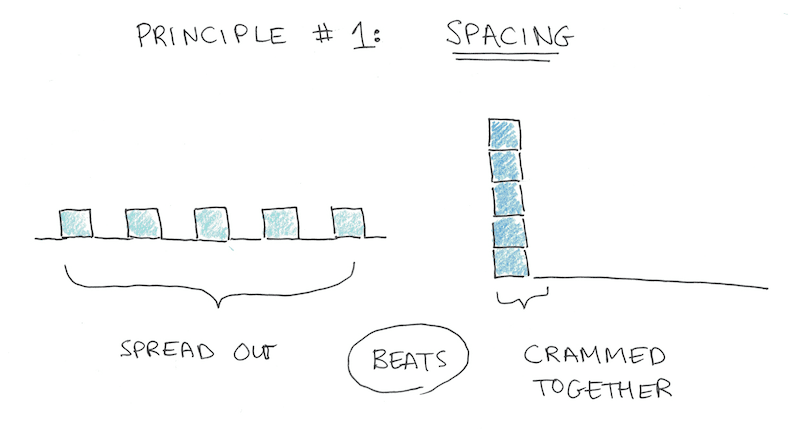1) Spaced Practice
Evidence shows that studying your material in several sessions spread out over a long period, rather than repeatedly learning stuff in a short period, really helps to retain the material.
Importantly, it is better to overshoot the duration between your revision than to undershoot. If an exam is 2 months away a minimum of 10 days is recommended, it can get 12 but 8 is not fine. It gives us a false perception of mastery which may not pay off later.
6
54 reads
CURATED FROM
IDEAS CURATED BY
Similar ideas to 1) Spaced Practice
When to Study
Studying time is more efficient if it is spread out over many sessions throughout the semester, with a little extra right before the exam.
Cover each piece of info five times from when you first learn it until your exam. It will enable you to retain the information with minimal effort.
Scientific Backed Ways To Learn Better
- Learn faster and retain more by imagining that you have to teach someone else what you are learning.
- Sleeping between two learning sessions greatly improves retention.
- Changing the way you practice a new motor skill can help you master it faster.
Read & Learn
20x Faster
without
deepstash
with
deepstash
with
deepstash
Personalized microlearning
—
100+ Learning Journeys
—
Access to 200,000+ ideas
—
Access to the mobile app
—
Unlimited idea saving
—
—
Unlimited history
—
—
Unlimited listening to ideas
—
—
Downloading & offline access
—
—
Supercharge your mind with one idea per day
Enter your email and spend 1 minute every day to learn something new.
I agree to receive email updates

